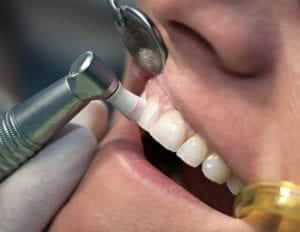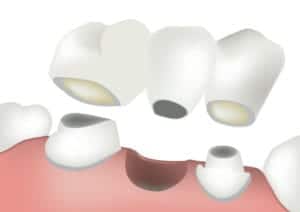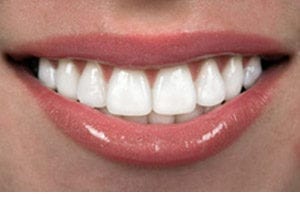
As we age, changes occur in our bodies. The way we look begins to change, we may not be as strong as we once were or we may become forgetful. Your mouth and teeth are no different and, without proper care, will start to show signs of aging.
While your teeth might be getting older, there are plenty of ways and options to keep your mouth healthy and looking your best.
Gum disease tends to be more common in older people.
Gum tissue recedes as we age and can result in exposing the neck of the tooth. This area is a prime target for bacteria that can settle on both the gum tissue and teeth. The result can be bleeding gums, loose teeth or teeth that fall out. Infection, irritation, and inflammation are avoidable with good oral health habits.
- Make and keep six-month dental checkups to avoid the buildup of dental plaque
- Brush twice each day and also remember to brush your tongue
- Floss each day to remove particles and plaque between teeth
- Use mouthwash to help reduce plaque buildup and remove any remaining food
- Talk to your dentist about options to remove or keep gum disease away
Tooth loss can result from many factors.
 As we age, osteoporosis becomes a primary culprit in weakening bones, including the jawbone, resulting in loose teeth or the loss of teeth. Taking care of your overall health can help manage conditions and lessen the impact on your teeth.
As we age, osteoporosis becomes a primary culprit in weakening bones, including the jawbone, resulting in loose teeth or the loss of teeth. Taking care of your overall health can help manage conditions and lessen the impact on your teeth.
- Talk to your doctor about having a bone density test
- Eat a healthy diet of fruits, vegetables, lean protein, whole grains, and low-fat dairy
- Ensure you are getting enough calcium in your diet or using supplements
- To ensure absorption of calcium, consider increasing your vitamin D intake
- Get regular exercise and limit the amount of alcohol
- Regular brushing, flossing, and dental checkups
Yellow or discolored teeth can result as changes in the outer surface of the teeth’s dentin occur.
 The process can be caused by years of smoking and consuming stain-causing drinks and food. While it may not mean disease exists, darkened or stained teeth are aging and avoidable!
The process can be caused by years of smoking and consuming stain-causing drinks and food. While it may not mean disease exists, darkened or stained teeth are aging and avoidable!
- Ensure you have regular dental checkups and cleanings
- Brush twice every day and floss each day
- Eat plenty of fruits and vegetables, which can help scrub the surface of teeth
- Drink plain water after eating or drinking
- Talk to your dentist about professional whitening options
Dry mouth, or xerostomia, can result from prescription medications, over-the-counter drugs or reduced effectiveness of salivary glands.
The risks of dry mouth include increased bacteria, gum disease, shrinking gum line, and bad breath.
- Drink extra water, and hold it in your mouth a little longer, to keep your mouth moist
- Limit your intake of caffeine, which can dry the mouth further
- Avoid mouthwashes with alcohol and consider specially formulated dry mouth rinses
- Chew sugar-free gum or suck on sugar-free lozenges to help stimulate saliva
Cavities affect people of all ages!
 Cavities can form as a result of poor dental hygiene habits, but can also crop up as a side effect from certain medications. Many prescription drugs can cause changes in the mouth that lead to an environment where bacteria can grow.
Cavities can form as a result of poor dental hygiene habits, but can also crop up as a side effect from certain medications. Many prescription drugs can cause changes in the mouth that lead to an environment where bacteria can grow.
- Brush twice each day and floss every day
- Talk to your doctor about adjusting any medication doses
- Get old fillings checked to ensure they are still protecting your teeth
- Drink more water to flush away food particles and keep the mouth hydrated
- Ask your dentist about fluoride, sealants or varnish to protect your teeth
As your teeth age, the nerves become less sensitive. Because they are less sensitive, you might not feel it as problems emerge. To avoid age-related issues for your teeth and overall oral health, be sure to brush twice each day, floss every day, and visit your dentist for regular checkups.
